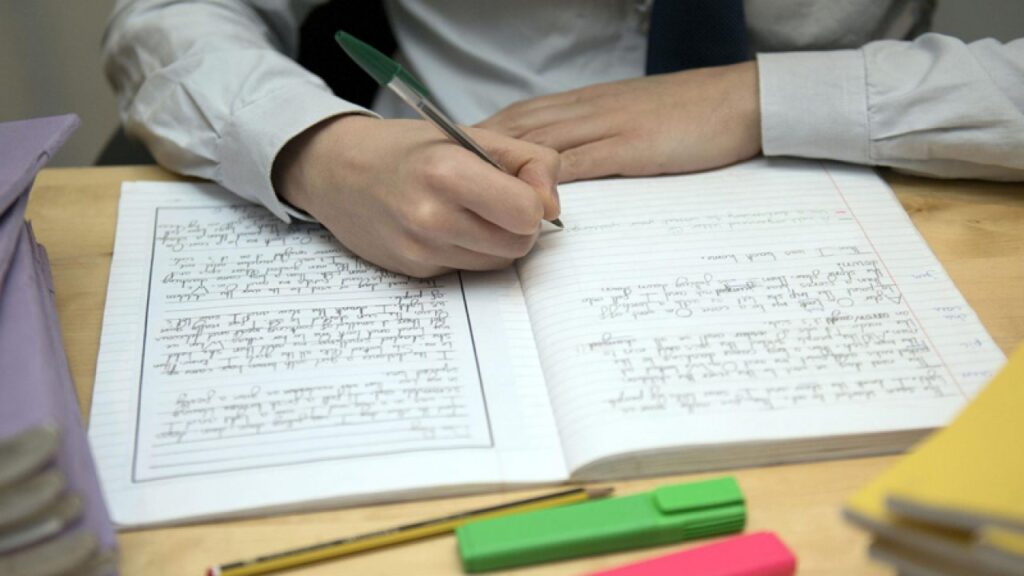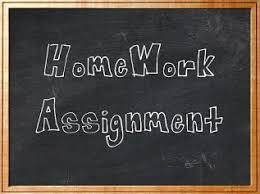

Homework: pros and cons.
Opinion is a judgment on some matter, a point of view on some object, evaluation. It comes from the verb to think (the obsolete to think, to count, to believe, from the Proto-Slavonic mnti). Argument is proof, persuasion, argument. It is derived from the Latin argumentum (also associated with the verb arguo – show, reveal, discover). image
Marianna Lebedeva
It’s hard to go forward with your head turned back.
Eastern wisdom
Mikhail Gasparov:
“The family should take care that a person meets the requirements of society as they were 20 years ago, the street – the requirements of today, school – the requirements that will be in 20 years. Now the worst thing the school does is worse”. Read more nerehttps://argoprep.com/blog/pros-and-cons-of-homework-the-great-homework-debate/
We often talk about traditions in education. In the usual sense, people define a tradition as what they usually do, without understanding the reasons for its emergence and preservation.
The encyclopedic dictionary states that tradition is an anonymous, spontaneously developed system of samples, norms, rules, which guides a fairly large and stable group of people in their behavior. In reality, tradition reflects the norms and values existing in a certain period. It can be so broad that it covers the entire society. Tradition is generally not understood as having a beginning and an end in time.
But tradition can lose its significance as a result of changing needs and become prejudiced. For example, at a certain period of history it became clear that domestic education is not enough to meet the needs of the state, and then modernization of education began.
According to the definition of the modern economic dictionary, modernization is understood as improvement, improvement, renewal of an object, bringing it into conformity with new requirements and norms, technical conditions, quality indicators. It is the improvement and renewal of an object, rather than the abandonment of all the old ones.
Modernization occurs when the existing system ceases to meet the challenges of time. When the requirements for the education of modern man change, modernization of education becomes necessary. Modernisation of the education system has always followed the state’s needs in educating a person with the qualities required for that state.
Who does success in educational modernization depend on? With the advent of the Russian education system in the 18th century, a teacher becomes a public man, and in some periods is equated to a public servant. In 1786, during the reign of Catherine II, was published “The Charter of national schools in the Russian Empire”. The charter stated: “All teachers in the people’s schools teaching, receiving a salary according to the state, are considered in active service of the Imperial Majesty and can expect the same rewards, which are rational service in other ranks are acquired.
This places demands not only on the teacher’s education, but also on his ability to respond to the needs of the state.
It is the responsibility of schools, and primarily their teachers, to ensure that pupils achieve educational results. It is they who determine the school’s compliance with state guarantees and success in modernising education in accordance with the new needs of the state and society.
Albert Camus:
“The school prepares us for a world that does not exist”.
The main condition for the success of a child’s education at school is learning activities organized by the teacher. Only in activity can a person learn new skills, and most importantly – to apply them in new situations of real life. Therefore for successful modernisation of the Russian education first of all such teachers which are not closed within the limits of lecture forms of a lesson, do not give to children irrelevant knowledge in a life and do not approach formally to an estimation of educational results of the pupil are necessary. It is they who are capable of successfully organizing educational activities that meet the interests of children and the needs of the state.

The argument is against.
By the example of the tasks that our guys receive every day, you can see the attitude of teachers to the problem of organizing educational activities of students.
Unfortunately, homework in a modern school has acquired importance as a material for self-study by students. Teachers do not develop new tasks for each class and for each lesson, although it would take into account the characteristics of children and prevent possible difficulties. If the homework were related to finding additional information, developing new ideas together with classmates, communicating with other people, visiting museums and exhibitions – they would have aroused genuine interest among students!
But in reality, the teacher believes that the homework is a self-study part of the paragraph in the textbook. That is why you can often see in the electronic journal the entries: “Homework: exercise on page n” or “§8, read”.
So what tasks do the textbook authors offer children to do?
In the history textbook, in the section “The Art of the High Renaissance” you can find the task: “Fill in the table “High Renaissance Artists” (Name/Page/Proceedings)”. If you imagine how long it would take to fill out this table with at least the main works, you can understand why children have to do their homework for two or more hours.
Another task from the history book: “Make a chronological table of the main events of the French Revolution”. Different authors distinguish from 20 to 35 major events of the French Revolution – from the announcement of the constituent assembly to the execution of Robespierre and his associates. It is possible to assume, how much forces will be spent by the pupil on filling of the useless table which anyway cannot be applied as the enumeration of historical events does not show their connections, the reasons of occurrence and consequences.
Vladislav Katarzyński:
“From the lessons of some teachers, we only learn the ability to sit upright.
Most often in the wording of homework in textbooks there are verbs “remember”, “name”, “think”, “write”, “read in the text of the paragraph”. But the exemplary core curriculum of basic general education, in which teaching teams are expected to develop curricula for subjects, does not specify such actions. The new educational standard of basic general education, which was launched in 2015 by all Russian schools, presents the results expressed in verbs “compare”, “prove”, “analyze”, “apply”, “systematize”, “evaluate”. By offering traditional homework, teachers will not be able to provide new educational results for children, and this is an undeniable argument.
One of the school subjects that can be easily constructed on the basis of students’ activities is a foreign language. The main final requirement for the results of its study is the mastery of “foreign language competence”, i.e. the ability to communicate in a foreign language, to use the acquired communication skills in real life, learning and professional activities. It would seem that learning a foreign language is a continuous practice of communication, doing their homework, students find new interesting information about the culture of other countries to introduce it to classmates. But if you analyze the content of homework offered in popular foreign language textbooks, you can see that in reality children are offered to read (and often learn) texts in a foreign language on their own or to do a written grammar.